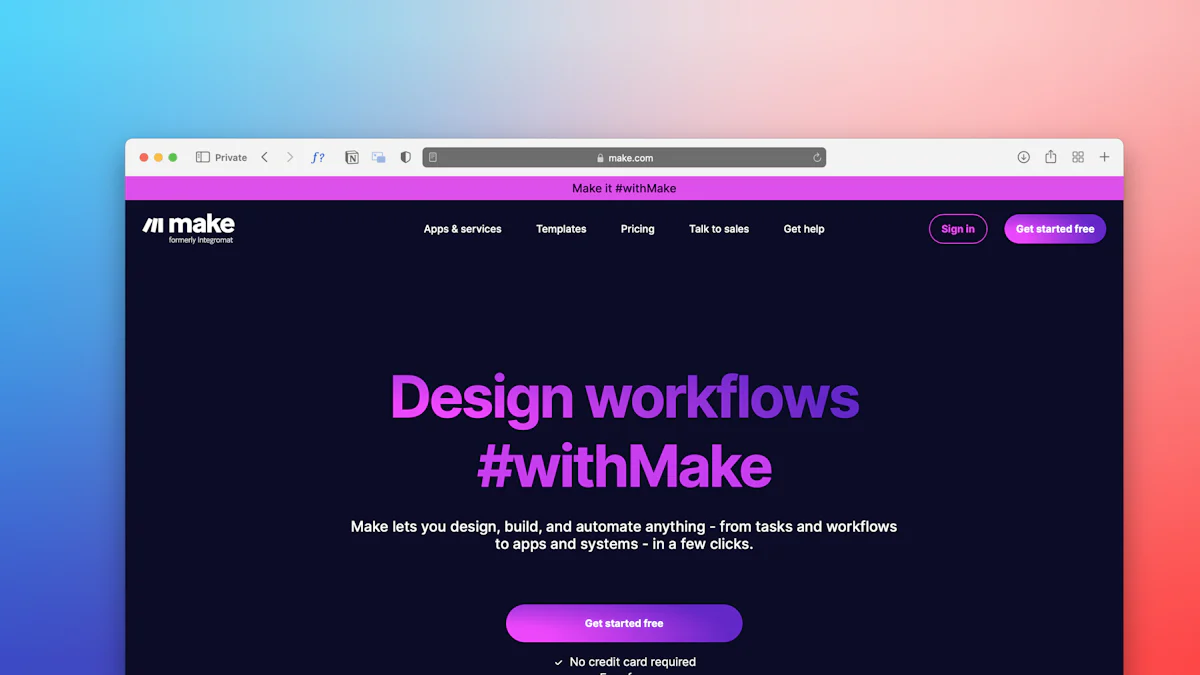Top 10 Customer Service Portal Software for 2024

In today’s fast-paced business world, delivering exceptional customer service has become a cornerstone of success. Choosing the right customer service portal software can transform how you interact with your customers. It enables you to streamline support processes, reduce response times, and enhance satisfaction levels. For instance, tools like Sobot allow you to consolidate resources such as help articles, video tutorials, and step-by-step guides, empowering your customers to resolve issues independently. Studies reveal that businesses using such software can answer up to 90% of queries while cutting ticket handling time by 35% and operational costs by 60%. These benefits make investing in the right solution essential for staying competitive in 2024.
Key Takeaways
- Investing in customer service portal software can significantly enhance customer satisfaction by providing quick access to self-service resources.
- Streamlining support processes through centralized platforms reduces response times and allows teams to focus on complex issues.
- Automating routine tasks with customer service software can lead to substantial operational cost savings, with some businesses cutting costs by up to 60%.
- Choosing software that integrates seamlessly with existing tools is crucial for maintaining efficient workflows and data management.
- Utilizing free trials and demos is essential to evaluate the software's features and ensure it meets your business needs before making a commitment.
- Scalability and customization are key factors to consider, as your customer service portal should grow and adapt alongside your business.
Understanding Customer Service Portal Software
What Is Customer Service Portal Software?
Definition and purpose
Customer service portal software is a digital solution designed to enhance how businesses interact with their customers. It provides a centralized platform where customers can access resources like help articles, video tutorials, and step-by-step guides. This software empowers users to resolve issues independently, reducing the need for direct support. For businesses, it streamlines communication and ensures consistent service delivery across multiple channels. By offering tools to manage inquiries and track requests, customer service portal software improves both efficiency and customer satisfaction.
Key industries that benefit from it
Several industries rely on customer service portal software to optimize their operations. E-commerce businesses use it to handle high volumes of customer inquiries efficiently. Healthcare providers leverage it to offer patients access to medical records and appointment scheduling. Financial institutions utilize it to provide secure access to account information and transaction history. Additionally, industries like education, IT services, and real estate benefit from its ability to simplify communication and enhance client experiences.
Benefits of Customer Service Portal Software
Enhancing customer satisfaction
Customer satisfaction improves significantly when customers can find solutions quickly. With features like self-service portals, customers gain instant access to the information they need. For example, Sobot allows businesses to upload detailed guides and FAQs, enabling users to resolve common issues without waiting for support. This proactive approach builds trust and fosters loyalty.
Streamlining support processes
Customer service portal software simplifies support workflows by consolidating all customer interactions in one place. It enables support teams to manage tickets, track progress, and respond faster. Businesses using tools like these often see a reduction in response times, which leads to more efficient operations. Streamlined processes also free up resources, allowing teams to focus on complex issues that require personalized attention.
Reducing operational costs
Investing in customer service portal software can lead to significant cost savings. Automating routine tasks, such as answering frequently asked questions, reduces the workload on support agents. This minimizes the need for large support teams and lowers overall operational expenses. Studies show that businesses using such software can cut ticket handling time by 35% and operational costs by 60%, making it a cost-effective solution for long-term growth.
Top 10 Customer Service Portal Software for 2024

Sobot: A Leading Customer Service Portal Software
Key Features
Sobot stands out as a comprehensive customer service portal software designed to simplify your support operations. It offers a robust self-service portal where customers can access FAQs, video tutorials, and troubleshooting guides. The platform integrates seamlessly with various tools, ensuring smooth workflows for your team. Its AI-powered chatbot enhances efficiency by handling repetitive queries, allowing your agents to focus on complex issues. Sobot also provides advanced analytics, helping you track customer satisfaction and identify areas for improvement.
Pricing Overview
Sobot offers flexible pricing plans tailored to businesses of all sizes. The basic plan is ideal for small businesses seeking essential features, while the premium plan includes advanced tools like AI chatbots and detailed analytics. Custom enterprise solutions are also available for larger organizations. Transparent pricing ensures you only pay for what you need, making it a cost-effective choice.
Pros and Cons
Pros:
- User-friendly interface suitable for all skill levels.
- AI-powered tools that reduce response times.
- Comprehensive analytics for data-driven decisions.
Cons:
- Limited customization options in the basic plan.
- Advanced features may require additional training.
Zendesk
Key Features
Zendesk delivers a scalable solution for businesses aiming to enhance their customer service. Its ticketing system centralizes all customer interactions, ensuring no query goes unanswered. The platform includes automation tools that streamline workflows and reduce manual tasks. With AI capabilities, Zendesk helps you predict customer needs and provide proactive support. It also supports omnichannel communication, allowing you to connect with customers through email, chat, and social media.
Pricing Overview
Zendesk offers tiered pricing plans to accommodate different business needs. The entry-level plan is affordable and includes essential features like ticket management. Higher-tier plans unlock advanced automation, AI tools, and omnichannel support. While the pricing may be higher than some competitors, the feature depth justifies the investment for growing businesses.
Pros and Cons
Pros:
- Scalable for businesses of all sizes.
- Advanced automation and AI features.
- Strong omnichannel support capabilities.
Cons:
- Higher cost compared to similar platforms.
- Steeper learning curve for new users.
Freshdesk
Key Features
Freshdesk provides a versatile customer service portal software solution with options for both standalone help desks and omnichannel support. Its intuitive interface makes it easy for your team to manage tickets and collaborate on solutions. Automation features, such as canned responses and workflow rules, save time and improve efficiency. Freshdesk also supports integrations with popular tools, ensuring seamless operations across platforms.
Pricing Overview
Freshdesk offers competitive pricing with plans designed for small businesses and enterprises alike. The standalone help desk system is budget-friendly and perfect for startups. For businesses requiring broader engagement, the omnichannel support option provides access to multiple communication channels. This flexibility ensures you can choose a plan that aligns with your goals.
Pros and Cons
Pros:
- Affordable options for small businesses.
- Easy-to-use interface with minimal training required.
- Flexible plans catering to diverse needs.
Cons:
- Limited advanced features in lower-tier plans.
- Omnichannel support requires higher-tier subscriptions.
Salesforce Service Cloud
Key Features
Salesforce Service Cloud offers a powerful platform designed to enhance your customer support operations. It provides a unified workspace where your team can manage cases, track customer interactions, and resolve issues efficiently. The platform integrates seamlessly with Salesforce CRM, enabling you to access customer data in real time. Its AI-powered Einstein Bots handle routine queries, freeing up your agents for more complex tasks. Additionally, the omnichannel support feature ensures you can connect with customers through their preferred communication channels, such as email, chat, or social media.
Pricing Overview
Salesforce Service Cloud provides flexible pricing plans tailored to meet the needs of businesses of all sizes. The basic plan includes essential features like case management and knowledge base access. Advanced plans offer AI tools, automation, and analytics for larger teams. While the pricing may be higher than some alternatives, the scalability and depth of features make it a worthwhile investment for growing businesses.
Pros and Cons
Pros:
- Seamless integration with Salesforce CRM.
- Advanced AI tools for automation.
- Comprehensive omnichannel support.
Cons:
- Higher cost compared to some competitors.
- Requires training for full utilization.
HubSpot Service Hub
Key Features
HubSpot Service Hub combines customer service tools with CRM functionality, offering a unified platform for managing customer interactions. Its ticketing system allows you to track and prioritize customer inquiries effectively. The platform includes a knowledge base feature, enabling you to create self-service resources for your customers. HubSpot’s automation tools streamline repetitive tasks, improving your team’s efficiency. Additionally, its customer feedback surveys help you gather insights to enhance your service quality.
Pricing Overview
HubSpot Service Hub offers tiered pricing plans, starting with a free version that includes basic tools like ticketing and live chat. Paid plans unlock advanced features such as automation, reporting, and customer feedback tools. The pricing structure is transparent, making it easy for you to choose a plan that aligns with your business needs and budget.
Pros and Cons
Pros:
- Free plan available for small businesses.
- Easy-to-use interface with minimal learning curve.
- Integration with HubSpot CRM for seamless data access.
Cons:
- Limited advanced features in the free plan.
- Automation tools require higher-tier subscriptions.
Zoho Desk
Key Features
Zoho Desk stands out as a versatile customer service portal software that supports businesses in delivering exceptional customer experiences. Its multi-channel support feature allows you to manage customer interactions across email, chat, and social media from a single platform. The AI assistant, Zia, helps your team by suggesting solutions and automating routine tasks. Zoho Desk also supports multiple languages, making it ideal for businesses with a global customer base. Its robust reporting tools provide insights into team performance and customer satisfaction.
Pricing Overview
Zoho Desk offers affordable pricing plans suitable for businesses of all sizes. The free plan includes basic ticketing and email support, while paid plans unlock advanced features like automation, multi-channel support, and analytics. The pricing is competitive, ensuring you get value for your investment without compromising on essential features.
Pros and Cons
Pros:
- Multi-language support for global reach.
- Affordable pricing with a free plan option.
- AI assistant for enhanced efficiency.
Cons:
- Limited features in the free plan.
- Advanced analytics require higher-tier plans.
Intercom
Key Features
Intercom offers a modern approach to customer support by combining live chat, bots, and a robust messaging platform. Its standout feature is the ability to provide personalized customer experiences through targeted messages and automated workflows. The platform integrates seamlessly with your existing tools, ensuring smooth operations. Intercom’s AI-powered bots handle repetitive queries, allowing your team to focus on more complex issues. Additionally, its reporting tools provide insights into customer behavior, helping you refine your support strategies.
Pricing Overview
Intercom provides flexible pricing plans tailored to businesses of different sizes. The entry-level plan includes essential features like live chat and basic automation, making it suitable for small businesses. Advanced plans unlock features such as proactive messaging and in-depth analytics, catering to larger organizations. While the pricing may seem higher compared to some competitors, the value lies in its ability to deliver personalized customer interactions.
Pros and Cons
Pros:
- Advanced messaging capabilities for personalized support.
- Seamless integration with existing tools.
- AI-powered bots that improve efficiency.
Cons:
- Higher cost for advanced features.
- Learning curve for new users.
LiveAgent
Key Features
LiveAgent stands out as a feature-rich customer service portal software designed to enhance customer interactions. It offers a unified inbox that consolidates emails, chats, calls, and social media messages in one place. The platform includes a built-in call center, enabling you to manage voice support without additional tools. LiveAgent also provides a self-service portal where customers can access FAQs and knowledge base articles. Its gamification features motivate your team by rewarding them for excellent performance.
Pricing Overview
LiveAgent offers competitive pricing plans to suit businesses of all sizes. The basic plan includes essential tools like ticket management and email support. Higher-tier plans unlock advanced features such as live chat, call center capabilities, and multi-channel support. The transparent pricing ensures you can choose a plan that aligns with your budget and operational needs.
Pros and Cons
Pros:
- Comprehensive multi-channel support.
- Built-in call center for voice support.
- Affordable pricing with flexible plans.
Cons:
- Limited customization options in lower-tier plans.
- Advanced features may require additional training.
Help Scout
Key Features
Help Scout focuses on simplicity and efficiency, making it an excellent choice for small to medium-sized businesses. Its shared inbox feature allows your team to collaborate on customer inquiries seamlessly. The platform includes a knowledge base tool, enabling you to create self-service resources for your customers. Help Scout also offers customer satisfaction ratings, helping you gather feedback to improve your service quality. Its integrations with popular tools ensure smooth workflows across your operations.
Pricing Overview
Help Scout provides straightforward pricing plans designed to meet the needs of growing businesses. The entry-level plan includes core features like shared inbox and knowledge base access. Advanced plans offer additional tools such as reporting and automation. The pricing is transparent, ensuring you only pay for what you need.
Pros and Cons
Pros:
- Simple and user-friendly interface.
- Excellent collaboration tools for teams.
- Transparent and affordable pricing.
Cons:
- Limited advanced features for larger enterprises.
- Basic reporting tools compared to competitors.
Kayako
Key Features
Kayako provides a seamless customer service experience by combining live chat, email, and help desk functionalities into one platform. Its shared inbox feature ensures your team can manage all customer interactions efficiently. The platform also includes a self-service portal, allowing your customers to find answers independently. Kayako’s real-time collaboration tools enable your team to work together on complex issues, ensuring faster resolutions. Additionally, its integration capabilities with third-party tools enhance workflow efficiency.
Pricing Overview
Kayako offers flexible pricing plans tailored to meet the needs of businesses of various sizes. The entry-level plan provides essential features like ticket management and live chat, making it suitable for small businesses. Advanced plans include additional tools such as automation and analytics, ideal for larger organizations. Transparent pricing ensures you can select a plan that aligns with your budget and operational goals.
Pros and Cons
Pros:
- Unified platform for managing multiple communication channels.
- Real-time collaboration tools for efficient teamwork.
- Self-service portal to empower customers.
Cons:
- Limited advanced features in basic plans.
- May require training for full utilization of all tools.
How to Choose the Right Customer Service Portal Software

Key Considerations
Security and data protection
When selecting customer service portal software, prioritize security. Protecting customer data is essential for maintaining trust and complying with regulations like GDPR or CCPA. Look for software that offers encryption, secure access controls, and regular updates to safeguard sensitive information. For example, platforms like Zoho Desk provide robust security features, ensuring your customer interactions remain private and protected.
Ease of use and user interface
A user-friendly interface ensures your team can quickly adapt to the software. Complicated systems slow down workflows and frustrate employees. Choose a platform with intuitive navigation and clear layouts. Tools like HubSpot Service Hub are known for their simplicity, making it easier for teams to manage tickets and customer inquiries without extensive training.
Integration with existing tools
Your customer service portal software should integrate seamlessly with your current tech stack. This ensures smooth workflows and eliminates the need for manual data transfers. For instance, Zoho Desk connects effortlessly with other Zoho products, while Salesforce Service Cloud integrates with its CRM, providing a unified view of customer interactions.
Importance of Free Trials and Demos
Testing features and compatibility
Free trials and demos allow you to explore the software’s features before committing. Use this opportunity to test its compatibility with your business needs. Check how well it handles ticket management, self-service portals, and automation. For example, Sobot offers trial periods that let you evaluate its AI-powered chatbot and analytics tools, ensuring they align with your goals.
Evaluating customer support and onboarding
Assess the quality of customer support during the trial phase. Reliable support ensures a smooth onboarding process and quick resolution of issues. Look for platforms that provide comprehensive onboarding resources, such as tutorials and live assistance. This helps your team get up to speed and maximizes the software’s potential.
Scalability and Customization
Adapting to business growth
Your chosen software should grow with your business. Scalable solutions accommodate increasing customer inquiries and expanding teams. Platforms like Salesforce Service Cloud offer flexible plans that cater to businesses of all sizes, ensuring you won’t outgrow the software as your operations expand.
Tailoring features to specific needs
Customization options allow you to adapt the software to your unique requirements. Whether it’s creating personalized workflows or adding specific integrations, flexibility is key. Zoho Desk, for instance, provides extensive customization capabilities, enabling you to tailor features like automation and reporting to fit your business model.
Selecting the right customer service portal software is crucial for enhancing your customer support operations in 2024. The top 10 solutions discussed offer unique features to streamline workflows, improve satisfaction, and reduce costs. Among these, Sobot stands out with its AI-powered chatbot, seamless integrations, and advanced analytics, making it a leading choice for businesses aiming to optimize their support processes. Exploring free trials or demos can help you evaluate compatibility and functionality before committing. Take the next step to elevate your customer service experience by choosing tools that align with your business goals.
See Also
2024's Leading Customer Service Software Solutions Revealed
Explore The Best Voice Of The Customer Tools 2024
Discover The Best Live Chat Support Software 2024